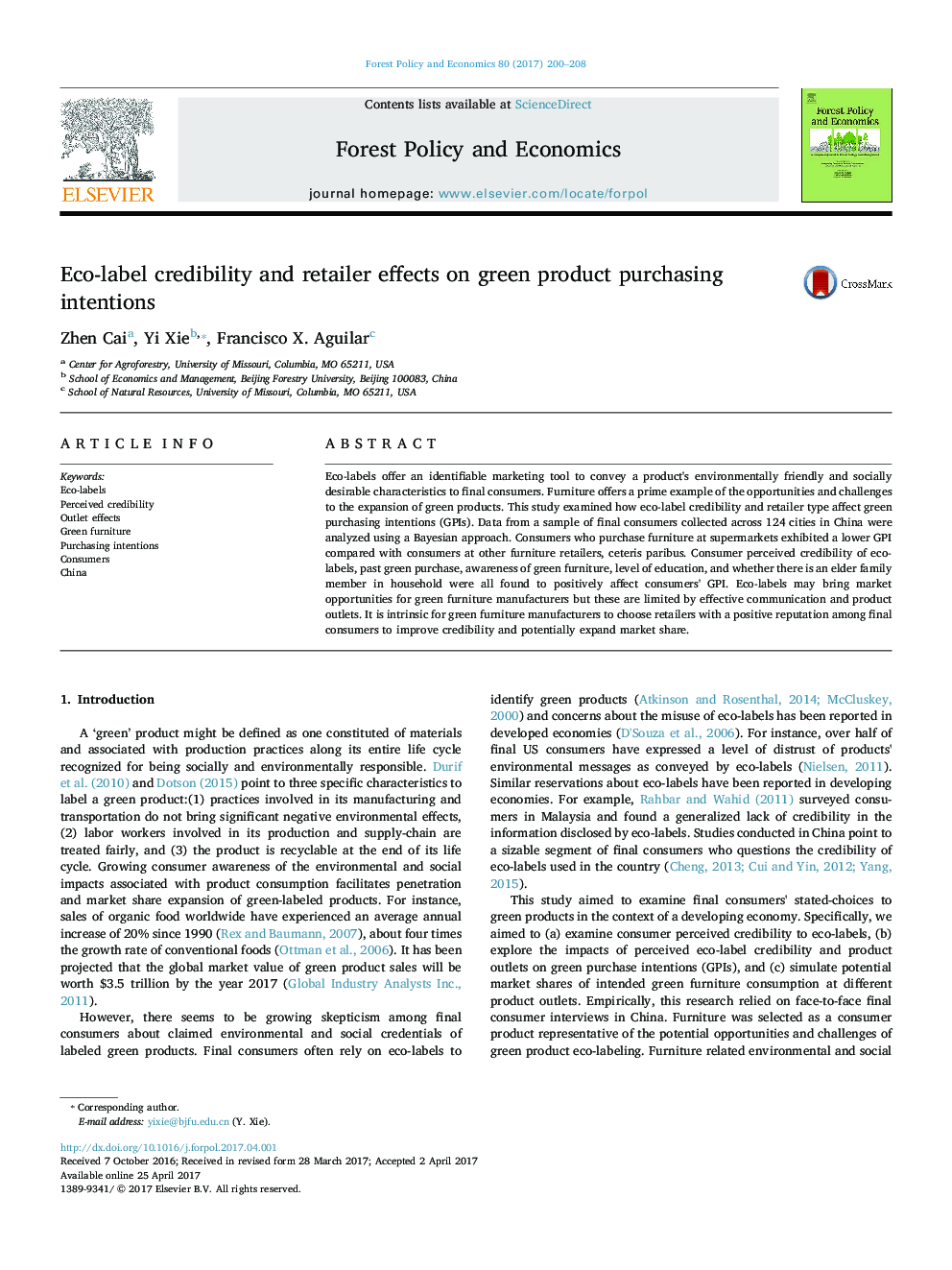| Article ID | Journal | Published Year | Pages | File Type |
|---|---|---|---|---|
| 6459751 | Forest Policy and Economics | 2017 | 9 Pages |
â¢Impacts of eco-label credibility and retailer type on consumers' green product purchasing intentions were investigated.â¢Over half of participants reported lack of credibility toward green furniture eco-labels in China.â¢Higher levels of consumers' credibility of eco-labels led to higher green product purchasing intention.â¢Past green purchase was a salient factor behind green product purchasing intention.â¢Highest green product purchase intention was found in franchised stores, lowest at supermarkets.
Eco-labels offer an identifiable marketing tool to convey a product's environmentally friendly and socially desirable characteristics to final consumers. Furniture offers a prime example of the opportunities and challenges to the expansion of green products. This study examined how eco-label credibility and retailer type affect green purchasing intentions (GPIs). Data from a sample of final consumers collected across 124 cities in China were analyzed using a Bayesian approach. Consumers who purchase furniture at supermarkets exhibited a lower GPI compared with consumers at other furniture retailers, ceteris paribus. Consumer perceived credibility of eco-labels, past green purchase, awareness of green furniture, level of education, and whether there is an elder family member in household were all found to positively affect consumers' GPI. Eco-labels may bring market opportunities for green furniture manufacturers but these are limited by effective communication and product outlets. It is intrinsic for green furniture manufacturers to choose retailers with a positive reputation among final consumers to improve credibility and potentially expand market share.
